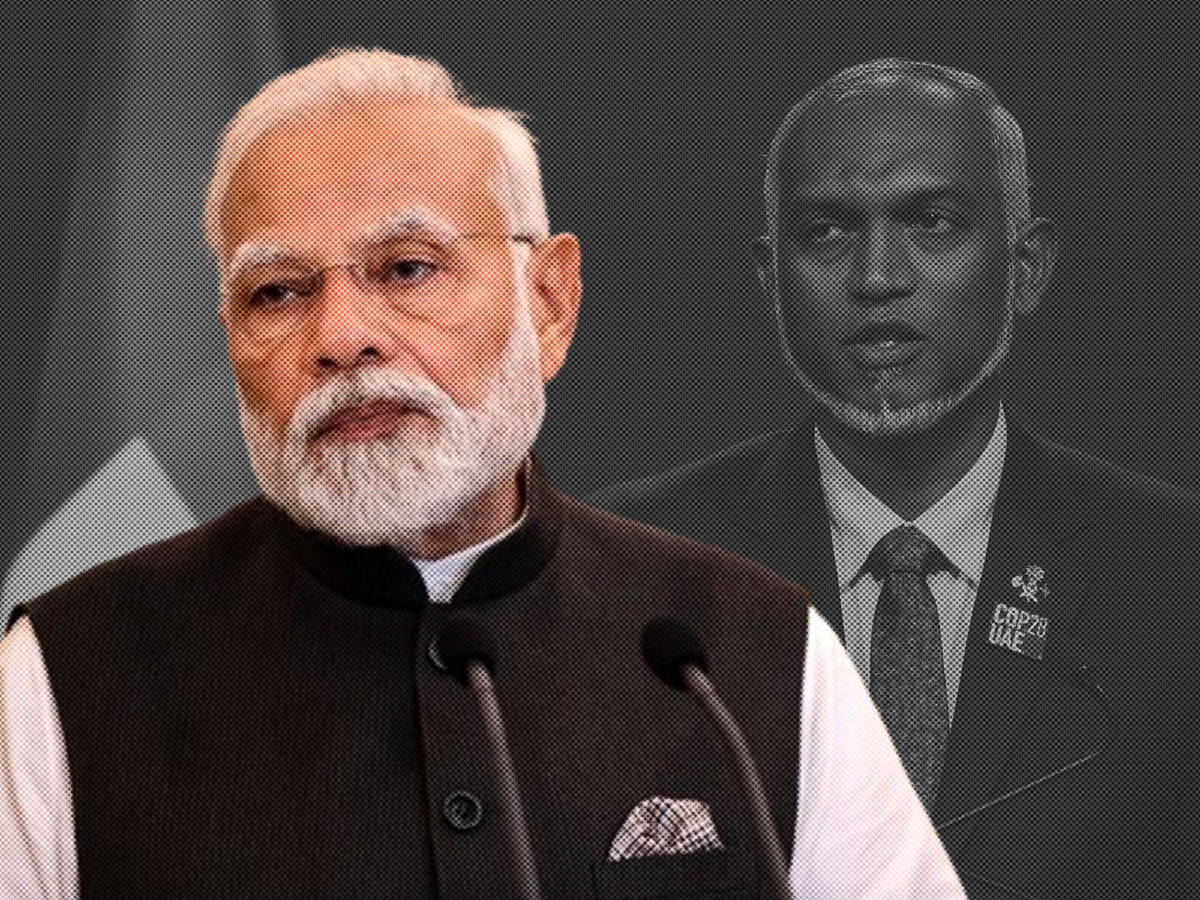
By Mohammed Amaan Khan
The Indo-Maldivian controversy has taken a contentious turn sparking tensions between the two nations after three deputy ministers in the Ministry of Youth Affairs in the Maldives made derogatory comments about India and Prime Minister Narendra Modi. The controversy erupted on social media, with Maryam Shiuna, Malsha Shareef, and Mahzoom Majid criticising India’s connections with Israel and implying that the Prime Minister’s recent visit to Lakshadweep was aimed at challenging Maldivian tourism.
In response, the Indian government raised the issue with the Maldives, suspending the three ministers. The Maldivian government, in a statement, clarified that the opinions expressed on social media were personal and did not reflect the official stance of the Maldives. It emphasised the importance of exercising freedom of expression responsibly.
The timing of this controversy is significant, given the ongoing diplomatic dynamics between India and the Maldives. The Maldives holds a crucial position as India’s maritime neighbour in the Indian Ocean Region (IOR) and plays a vital role in India’s ‘SAGAR’ initiative and ‘Neighbourhood First Policy.’ The recent spat comes on the heels of President Mohamed Muizzu’s call for India to withdraw its military presence from the Maldives archipelago, a demand that India has refuted, citing its focus on providing medical support to the islands.
President Muizzu’s decision to visit China ahead of India has not gone unnoticed, with Chinese state media praising his foreign policy approach suggesting a shift in the Maldives’ traditional alliance with India. This diplomatic move aligns with Muizzu’s election campaign, which portrayed India as a potential threat to Maldivian autonomy.
Despite these diplomatic tensions, India has remained a crucial partner for the Maldives in various sectors. Recent tourism statistics indicate that India has overtaken Russia as the leading tourist market for the Maldives, with over 205,000 visitors from India constituting 11.2% of total arrivals. This shift in tourist demographics marks a substantial change, considering Russia’s historical dominance in this regard.
The Indo-Maldivian relationship extends beyond tourism, encompassing defence cooperation, economic partnerships, and infrastructure projects. India plays an important role in the defence training of the Maldivian National Defence Force, meeting 70% of their training requirements. Additionally, India has been involved in high-impact community development projects, such as the construction of a drug detoxification and rehabilitation centre in Addu.
Economically, India has become the Maldives’ third-largest trade partner, with significant contributions to infrastructure projects like the Greater Male Connectivity Project (GMCP). The GMCP, a monumental undertaking funded by India, involves the construction of a 6.74 km bridge and causeway link between Male and nearby islands, making it the largest infrastructure project in the Maldives to date.
However, the controversy has not only impacted diplomatic ties but has also resounded in the business sector. Nishant Pitti, co-founder and CEO of EaseMyTrip, announced the suspension of all Maldives flight reservations in response to the disparaging remarks made by Maldivian ministers about India. The hashtag #BoycottMaldives gained traction on social media as Indian travellers delayed or cancelled their trips to the island nation.
The controversy surrounding Muizzu’s diplomatic choices and the inflammatory comments on social media has set the stage for a complex recalibration of Indo-Maldivian relations. The geopolitical significance of the Indian Ocean Region and the strategic importance of the Maldives make it imperative for both nations to navigate these challenges responsibly. As the controversy unfolds, the economic and diplomatic repercussions will undoubtedly shape the trajectory of this critical bilateral relationship in the months to come.
Mohammed Amaan Khan is a Research Fellow at the Centre for Development Policy and Practice (CDPP) and an aspiring economist who graduated with honours from Symbiosis School of Economics, earning a BSc in Economics.

